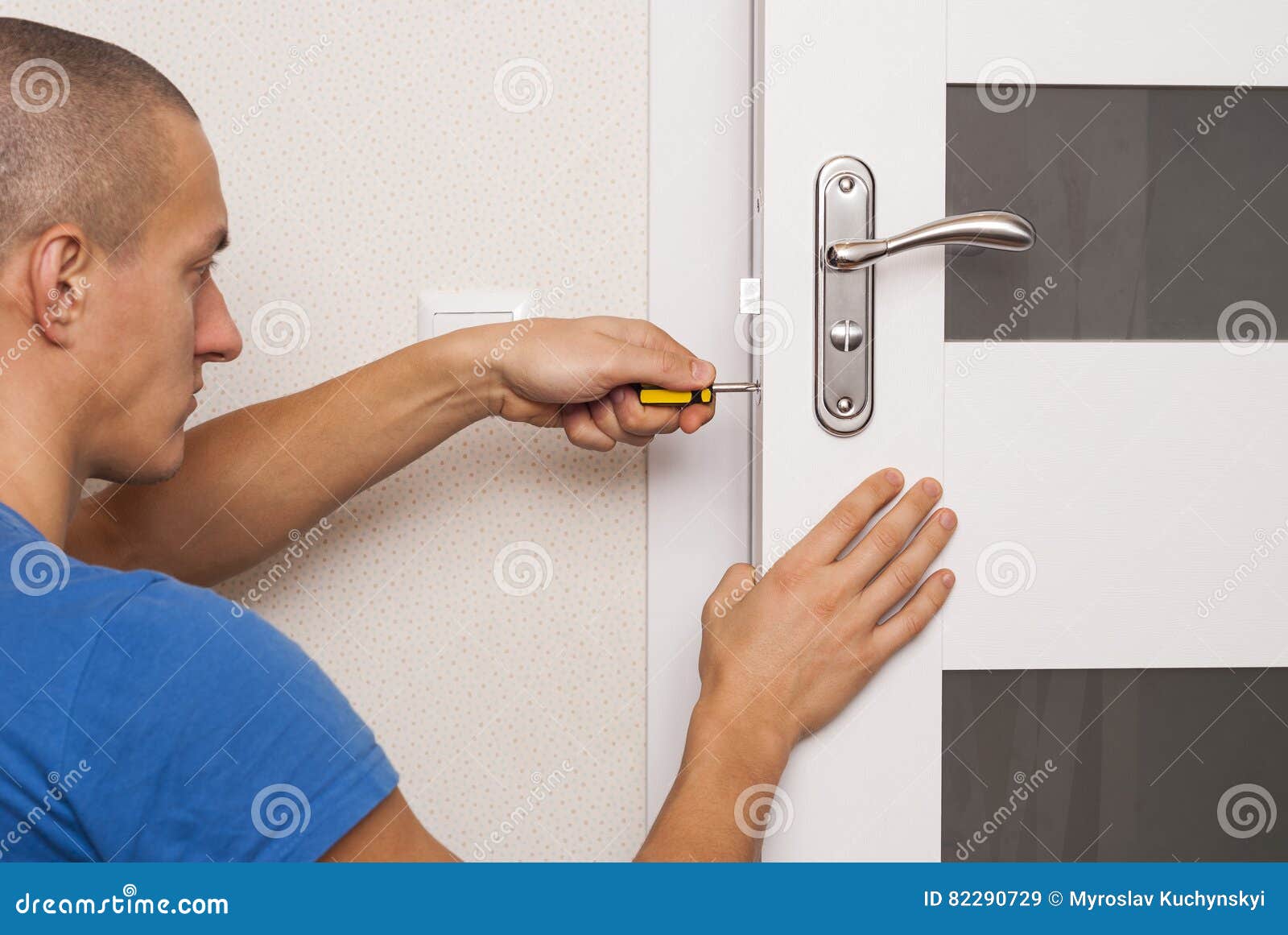Common Bedroom Door Lock Problems

Your bedroom door lock is your first line of defense against unwanted intrusion. A malfunctioning lock can leave you feeling vulnerable and insecure. While most bedroom door locks are reliable, they can sometimes encounter issues that require attention.
Jammed Locks
A jammed lock is a common problem that can be frustrating and inconvenient. This happens when the locking mechanism gets stuck, preventing the door from opening or closing.
Here are some common symptoms of a jammed lock:
- The key turns with difficulty or gets stuck in the lock.
- The door latch doesn’t engage properly, leaving the door unlocked.
- The door is difficult to open or close, requiring excessive force.
Several factors can contribute to a jammed lock:
- Worn-out parts: Over time, the internal components of the lock, such as the tumblers or springs, can wear out, leading to jamming.
- Debris buildup: Dust, dirt, and other debris can accumulate in the lock mechanism, obstructing its smooth operation.
- Improper installation: If the lock was not installed correctly, it can cause misalignment and jamming.
- Forced entry: Attempting to open the lock with the wrong key or using excessive force can damage the lock mechanism and lead to jamming.
Troubleshooting and DIY Solutions: Fix Bedroom Door Lock

Now that you’ve identified the problem with your bedroom door lock, let’s dive into some practical solutions you can tackle yourself. We’ll cover how to diagnose the issue and then walk through some common DIY fixes.
Identifying the Specific Problem
Before you start tinkering, it’s essential to understand the root cause of the lock malfunction. A visual inspection and some basic tests can help pinpoint the problem.
- Examine the Lock: Look for any visible signs of damage, wear, or debris. Check if the keyhole is clogged or if the latch isn’t engaging properly.
- Test the Lock: Try inserting the key and turning it. Does it feel smooth or stiff? Does the lock engage and disengage smoothly?
- Check the Handle: Does the handle feel loose or wobbly? This could indicate a problem with the handle itself or the screws attaching it to the door.
Lubricating the Lock
A common cause of lock problems is a lack of lubrication. Over time, the internal mechanisms can become dry and stiff, leading to difficulty turning the key or engaging the latch.
- Gather Supplies: You’ll need a lubricant specifically designed for locks. Avoid using oil-based products as they can attract dust and dirt.
- Apply Lubricant: Insert the key into the lock and turn it a few times. Then, apply a small amount of lubricant to the key and insert it again. Turn the key a few more times to distribute the lubricant evenly.
- Wipe Excess Lubricant: Use a clean cloth to remove any excess lubricant from the lock.
Cleaning Debris
Sometimes, dirt, dust, or debris can accumulate in the lock mechanism, obstructing its smooth operation.
- Remove Debris: Use a small, soft-bristled brush or a toothpick to carefully remove any visible debris from the keyhole and lock mechanism.
- Compressed Air: If the debris is stubborn, you can use compressed air to blow it out. Be sure to hold the can upright and aim the air stream away from your face and eyes.
- Repeat Lubrication: After cleaning the lock, it’s a good idea to lubricate it again to prevent future debris buildup.
Adjusting the Latch
If the latch isn’t engaging properly, you may need to adjust it. This can happen if the door has settled over time or if the strike plate (the metal plate on the door frame) is misaligned.
- Identify the Problem: Check if the latch is hitting the strike plate correctly. If it’s hitting too high or too low, you’ll need to adjust the latch.
- Locate the Adjustment Screws: Most door latches have small screws on the side or bottom.
- Adjust the Latch: Turn the screws clockwise to raise the latch and counterclockwise to lower it. Adjust the latch until it engages smoothly with the strike plate.
When to Call a Professional

While many bedroom door lock problems can be tackled with DIY solutions, there are instances where it’s best to call a professional locksmith. Recognizing when your skills fall short can save you time, frustration, and potentially even more damage.
Benefits of Hiring a Locksmith, Fix bedroom door lock
Hiring a professional locksmith offers several advantages, particularly when dealing with complex or potentially hazardous situations.
- Expertise and Experience: Locksmiths possess extensive knowledge of various lock mechanisms, security systems, and repair techniques. They can quickly diagnose problems and apply the appropriate solutions, ensuring a lasting fix.
- Specialized Tools: Locksmiths utilize specialized tools and equipment designed for intricate lock repairs and installations. These tools are often unavailable to the average homeowner, making them indispensable for tackling complex lock issues.
- Warranty on Repairs: Reputable locksmiths typically provide warranties on their repairs, offering peace of mind and protection against future issues. This warranty can cover parts and labor, ensuring that the fix is durable and reliable.
Choosing a Reputable Locksmith
Selecting a qualified and trustworthy locksmith is crucial for a successful and secure repair.
- Credentials and Licensing: Look for locksmiths who are licensed and insured. This demonstrates their commitment to professional standards and legal compliance.
- Online Reviews and Reputation: Research locksmiths online to check their customer reviews and ratings. This can provide insights into their reliability, professionalism, and customer satisfaction.
- Professional Affiliations: Consider locksmiths who are members of professional organizations like the Associated Locksmiths of America (ALOA). This indicates adherence to industry best practices and ethical standards.
